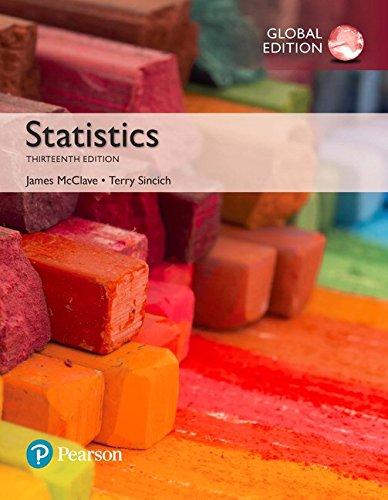Study of high-arctic butterflies. The impact of global warming and subsequent snow melt on the flight season
Question:
Study of high-arctic butterflies. The impact of global warming and subsequent snow melt on the flight season (migration dates) of butterflies inhabiting the High Arctic was investigated in Current Zoology (Apr. 2014). Annual data for a certain species of butterfly were collected for a 14-year period. The day of the onset of the flight season (y) was modeled as a function of the timing of the snowmelt (x1, the first date when less than 10 cm of snow was measured) and average July temperature (x2, in degrees Celsius). The interaction model, E1y2 = b0 + b1x1 + b2x2 + b3x1x2, was fit to the data with the following results:
yn = -144.2 + 2.05x1 + 35.4x2 - .21x1x2, R2
= 73, F@test p@value = .0032
a. Is the overall model statistically useful for predicting day of the onset of the flight season (y)? Test using a = .01.
b. Give a practical interpretation of R2.
c. A test of H0: b3 = 0 was rejected at a = .01. Should the researchers conclude that timing of snowmelt and average July temperature interact to predict the day of the onset of the flight season?
d. Give an estimate of the change in the day of the onset of the flight season (y) for every 1-day increase in the timing of the snowmelt (x1) for years with an average July temperature of x2 = 30 degrees Celsius.
Step by Step Answer:






